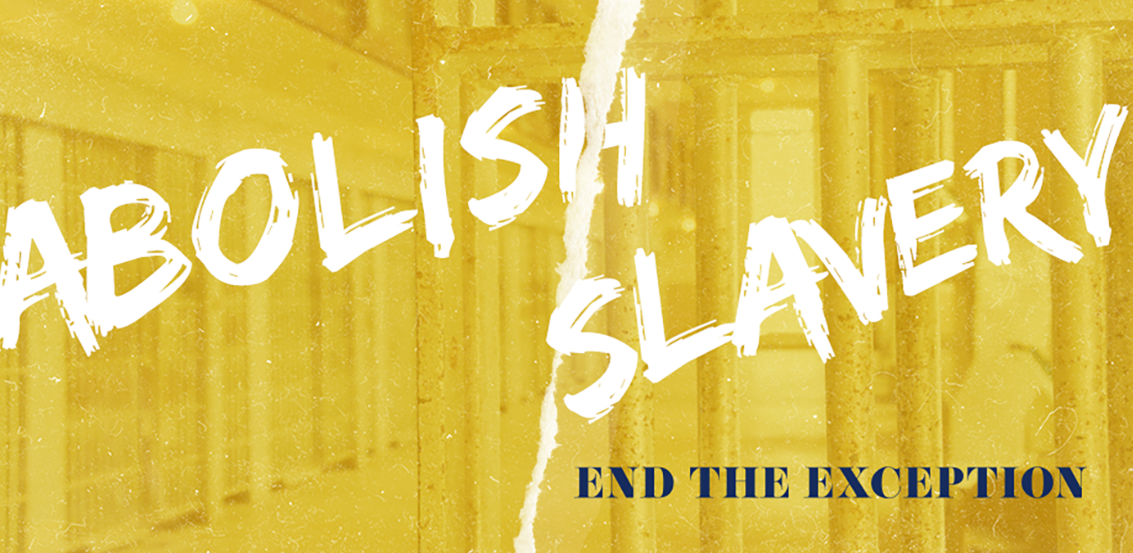End Legal Slavery in US Prisons - Prison Writers
Today's prison slave labor directly contributes to "New Jim Crow" dynamic

The Thirteenth Amendment to the US Constitution, which abolished slavery and involuntary servitude except for persons “duly convicted” of a crime, was a compromise that was made with the Confederacy in 1865.
Following the end of the Jim Crow era, the "War on Drugs" fueled mass incarceration by disproportionately filling America’s prisons with Black Americans - Black men, in particular - and enforcing racial control through the criminal justice system. This resulted in a redesign of America’s racial caste system that nominally adhered to the principle of colorblindness following the fall of Jim Crow. Indeed, author and civil rights litigator Michelle Alexander has described this phenomenon as “the New Jim Crow.”
Today, there are still incarcerated Black Americans picking crops on plantations across the country. Regardless of whether it’s through agricultural work or otherwise, the prison labor system creates a lack of control over one’s labor and freedom, and particularly for Black people. It’s no surprise, then, to find that in some states, incarcerated workers are not paid at all.
The essay "End Legal Slavery in US Prisons" is written by incarcerated writer Gordon Grilz and appears at the Prison Writers website. Excerpts are below.
*****
If you ask most Americans if there’s slavery in the United States, they will answer “No.” It was abolished during the Civil War by the Emancipation Proclamation signed by President Abraham Lincoln and the passage of the Thirteenth Amendment. At least that’s what many of us were taught in History, Civics, and Problems of Democracy classes in high school. But is it true?
Unfortunately, no. The hard, cold truth is that slavery is still legal in the U.S. Would it surprise you to learn that there are over two million slaves right now in America? You say you can’t believe it. Let’s take a closer look.
The 13th Amendment was passed by Congress on January 31, 1865, and ratified on December 6, 1865. Section 1 “Neither slavery nor involuntary servitude, except as a punishment for a crime whereof the party shall have been duly convicted, shall exist within the United States, or any place subject to their jurisdiction.” So slavery, as a punishment for a crime a person has been duly convicted of, shall exist within the United States.
How about that? There are currently over two million prisoners incarcerated within the U.S. who are, in fact, slaves. We speak of slavery in the past tense as an abhorrent evil that was banned in Civil War times, when the truth is that we should speak of slavery in the present tense as an abhorrent evil that continues to exist in the U.S.
American slaves are men, women, and juveniles, White, Black, Hispanic, Native, and Asian. We are very inclusive in who we enslave in this country. Now some may argue that since some prisoners are paid something for their labor, they are not slaves. Minnesota, for example, pays well for prisoner labor. In 1992 I earned $2.50/hr. as a teacher’s aide in MCF-Stillwater. Other states, like Arizona, pay inadequate subsistence wages that haven’t been increased in over forty years.
Then there are states like Texas where work is mandatory, but they pay prisoners nothing. Juneteenth, a Black American holiday celebrated in prison, is based on the Emancipation Proclamation, purportedly the date which it took effect in Texas. How ironic, especially for Black prisoners in Texas, who are still slaves. It makes you want to stand up and recite the Pledge of Allegiance or sing the Star Spangled Banner, doesn’t it?
Shame on you America. We are so much better than this. Keep in mind that at least 5% of those two million prisoners are actually innocent of the crimes for which they were convicted. That’s 100,000 innocent people in legal slavery in US prisons. We think chains and leg irons are things of the past, but they’re not.
*****
Gordon Grilz is an incarcerated writer in Arizona. He taught English at the college level for seven years prior to his incarceration in 1981 for a crime of passion, and was awarded first place for poetry Rain in the 2003 PEN Prison Writing Awards for his poem, “The Nature of Things.”
You can read his full essay "End Legal Slavery in US Prisons" at the Prison Writers website.










